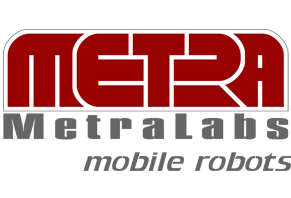6G-Terafactory
Open-RAN based campus networks for industrial real-time applications
PROJECT DESCRIPTION
Virtualized control and assistance functions
OBJECTIVES
The objective of the "Open-RAN based campus network for industrial real-time applications (6G-Terafactory)" project is to develop an open network architecture for campus networks in a digitized factory. The campus networks are to be realized from scratch in a "bottom-up" process and initially have only basic functionalities. Building on an open RAN approach, forward compatibility with upcoming 6G functions will be implemented to individually tailor campus networks to the needs of end users in the future. Overall, this is expected to reduce the complexity of the networks, resulting in a blueprint for campus networks "out-of-the-box". The campus network architecture developed in this way will be integrated into a factory (the so-called Terafactory) during the course of the project, where it will be demonstrated and optimized in active operation under various load scenarios.
INNOVATION & METHODOLOGY
The "out-of-the-box" campus networks can also be used in the future by companies without special mobile communications knowledge. The project results thus also enable small and medium-sized enterprises to take the step toward Industry 4.0 and the networked factory. By focusing on an open RAN architecture with open interfaces instead of a monolithic structure, independence from large network equipment suppliers is increased and the market for network components is also opened up to smaller companies. In this way, the project can contribute directly to increasing product diversity in Germany as a business location and strengthen technological sovereignty in Germany and in the European economic area.
OUR CONTRIBUTION
Based on the cross-project 6G/Open RAN approach, Gestalt Robotics is researching the concrete virtualization and outsourcing of control and assistance software services for mobile robots and worker assistance with a focused view on real-time requirements and low latency as well as the need for bidirectional transmission of high data rates under consideration of real industrial requirements. The primary task is to develop a software programming interface for application integration that allows the definition of service-specific QoS requirements in accordance with modern concepts of (micro)service architectures. When implementing the software modules, it is important to explore which AI-based value-added services can be implemented that cannot be realized with conventional networking and control concepts, and what concrete benefits they offer industrial users.
© ADVA Optical Networking SE
© Telecom Infra Project
Key facts
Open RAN Communication
Network slicing for isolation of network services with different quality of service
TSN support for deterministic and latency-controlled communication
Real-time indoor and outdoor positioning for tracking moving objects
Augmented Reality (AR)
Consideration of data glasses and stationary usage of AR
Seamless delivery of spatial contextual information for worker assistance
Virtualization of AI functions for workplace and environment perception
Autonomous Mobile Robots
Intralogistics (indoor and outdoor) and optimization of the flow of goods
Fully automated product provisioning at workstations and machines
Outsourcing of real-time critical navigation and safety services
Fully Automated Product Provisioning
View integrated workflows through automated chaining of work steps
Seamless delivery of communications and scalable software services
Automation of integration, installation, operation and lifecycle management
PartnerS & CONSORTIUM
ADVA Optical Networking SE
Project management as well as RAN integration and automation, definition of use cases in the Terafactory
German Research Center for Artificial Intelligence (DFKI GmbH)
Requirements analysis, planning, dimensioning and implementation for the 6G campus network, integration of all key concepts currently planned for 6G
Hochschule Schmalkalden
Test of innovative radio, AI, and automation concepts; realization of intelligent robotics applications
MetraLabs GmbH
Development of AGVs tailored to the use cases, their data provision, autonomous navigation as well as the management of multiple AGVs in a fleet
Funding
Federal Ministry of Education and Research
Program
“6G-Industrieprojekte zur Erforschung von ganzheitlichen Systemen und Teiltechnologien für den Mobilfunk der 6. Generation”
Duration
10.2022 – 10.2025
Project Management Agency
VDI/VDE Innovation + Technik GmbH
Project Poster
Project poster (German) as printable PDF
This project is/was financed with funding provided by the Federal Ministry of Education and Research under the “6G-Industrieprojekte zur Erforschung von ganzheitlichen Systemen und Teiltechnologien für den Mobilfunk der 6. Generation” program and managed by the Project Management Agency VDI/VDE Innovation + Technik GmbH. The author is responsible for the content of this publication.












